Archiv článků
Prohlédněte si všechny články a objevte více zajímavých témat!
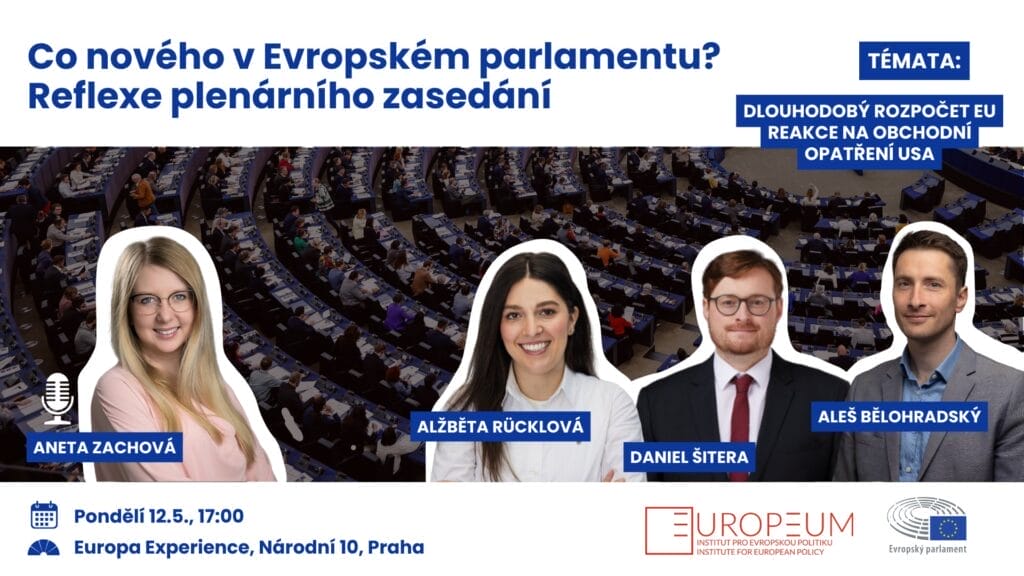
Co nového v Evropském parlamentu? Reflexe plenárního zasedání
Rádi bychom Vás pozvali na další ze série debat, které přináší aktuální pohled na klíčová témata projednávaná na plenárních zasedání Evropského parlamentu. Cílem diskusí je nabídnout srozumitelný přehled přijatých rozhodnutí a jejich širší dopad na Evropskou unii i Českou republiku. Každá debata poskytne prostor pro reflexi zásadních legislativních a politických kroků Evropského parlamentu, přímou diskusi s europoslanci a experty, a umožní otevřený dialog s odbornou i širokou veřejností.
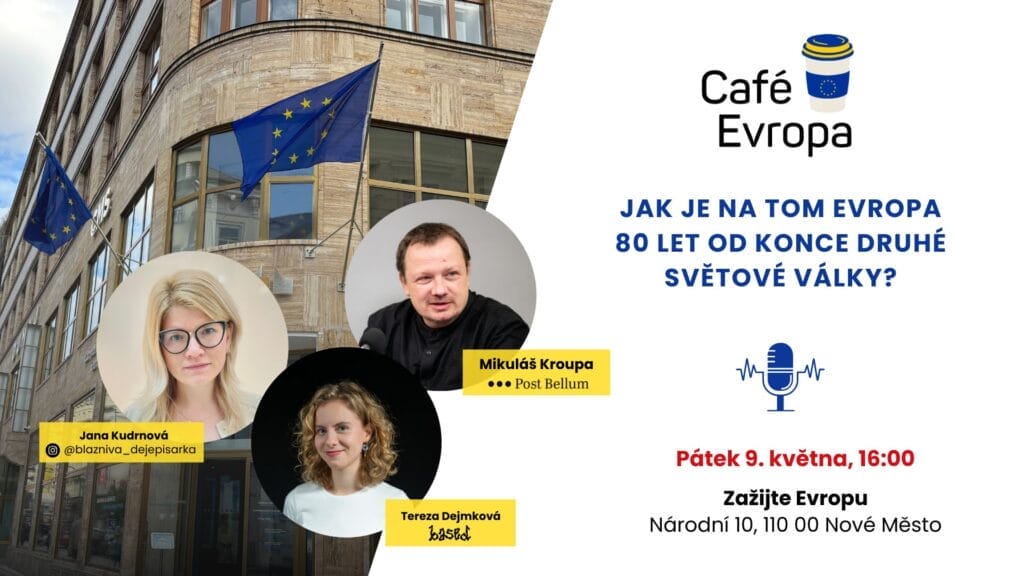
Veřejné natáčení podcastu - Jak je na tom Evropa 80 let od konce 2. světové války?
Druhá světová válka byla zásadní událostí pro vývoj Evropy a její současnou podobu. Uvědomujeme si to ale dnes ještě? Jak o konfliktu, od jehož konce uběhne letos 80 let, smýšlí mladá generace? A je potřeba si ho stále připomínat?
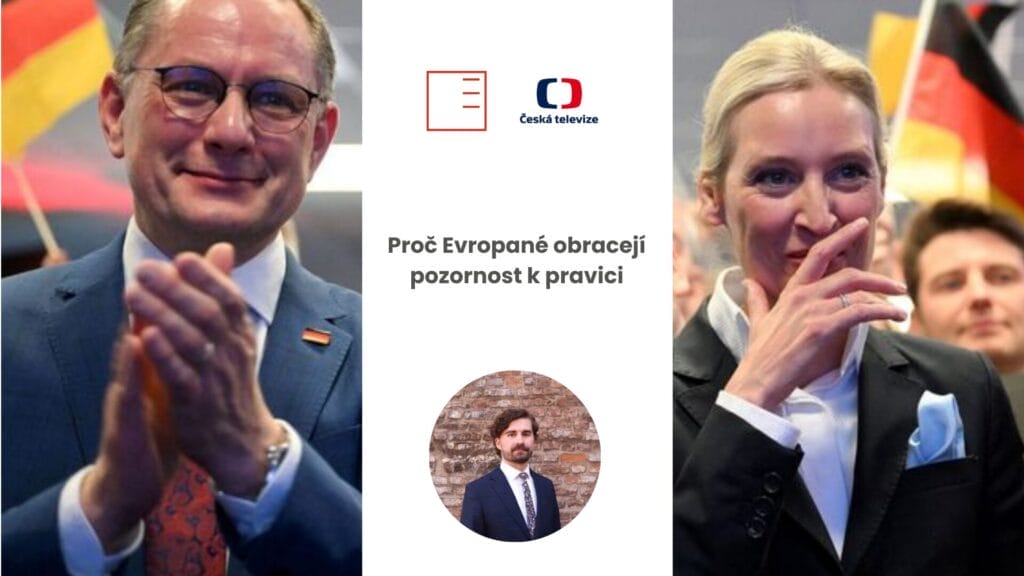
Česká televize | Proč Evropané obracejí pozornost k pravici
Evropa zažívá výrazný posun doprava. V Německu vzbudil velkou pozornost výsledek krajně pravicové AfD, která s 20,8 % skončila druhá a upevnila svou pozici zejména ve východní části země. V Rumunsku pak první kolo prezidentských voleb ovládl euroskeptický nacionalista George Simion, který získal přes 40 % hlasů a postoupil do rozhodujícího kola. Tyto výsledky potvrzují rostoucí podporu krajní pravice napříč Evropou, což představuje výzvu pro tradiční politické strany a evropskou integraci jako celek. Pro Českou televizi komentuje situaci zástupce ředitele Institutu EUROPEUM Viktor Daněk.
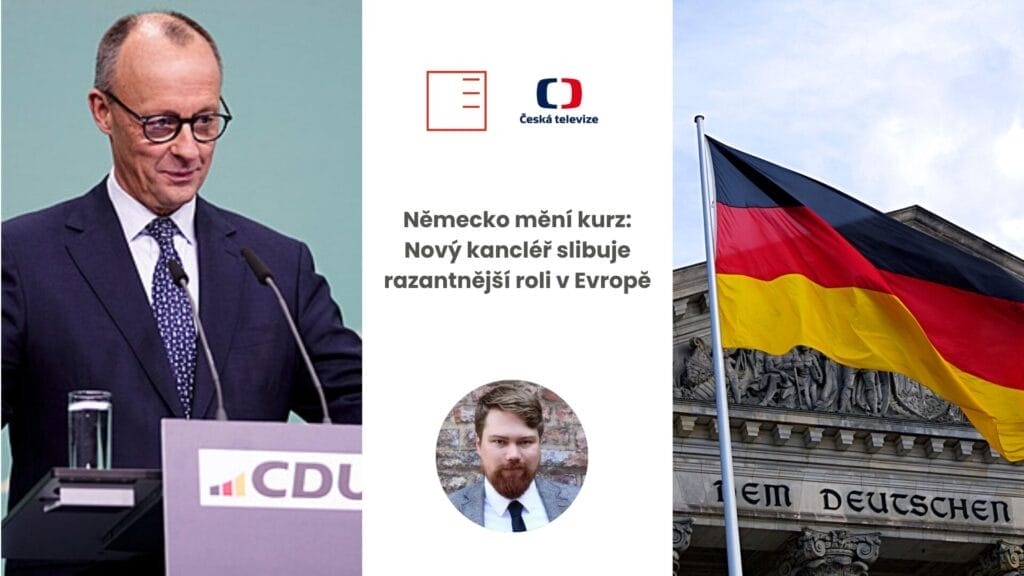
Česká televize | Německo mění kurz: Nový kancléř slibuje razantnější roli v Evropě
Německo má nového kancléře – Friedricha Merze, který slibuje aktivnější a rozhodnější roli své země na evropské scéně. Zatímco jeho předchůdce Olaf Scholz byl často kritizován za váhavý přístup, Merz chce tuto éru ukončit a posílit německý vliv v klíčových evropských jednáních, která podle diplomatů dlouhodobě brzdila právě nerozhodnost Berlína. Pro Českou televizi komentuje výkonný ředitel Institutu EUROPEUM Martin Vokálek.
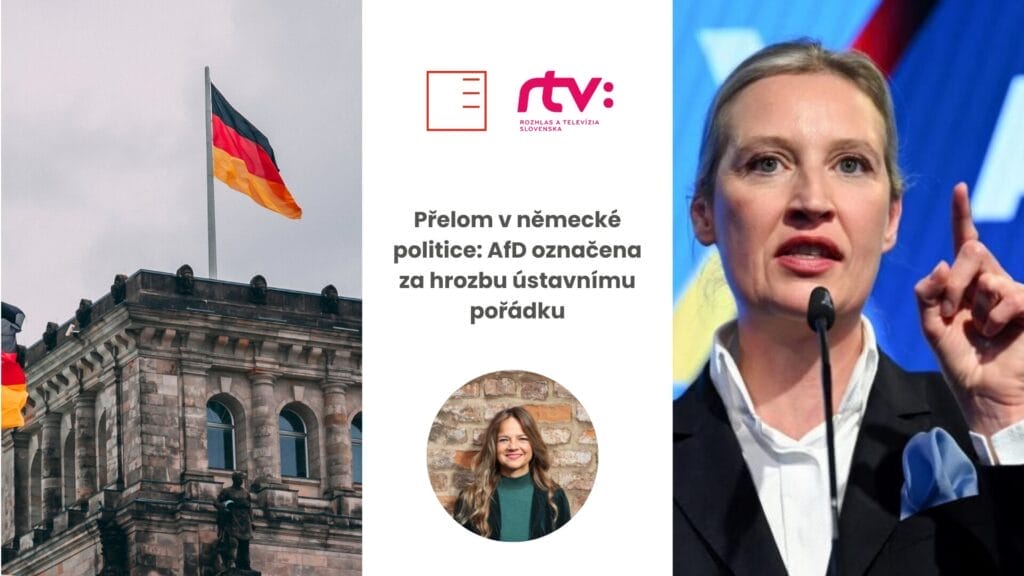
STVR | Přelom v německé politice: AfD označena za hrozbu ústavnímu pořádku
Německý Spolkový úřad na ochranu ústavy označil politickou stranu Alternativa pro Německo (AfD) za pravicově extremistický subjek. Úřad uvádí, že má přímé důkazy o tom, že aktivity této protiimigrační strany představují hrozbu pro demokratický pořádek v zemi. Vyšetřování navíc odhalilo opakovaná rasistická vyjádření představitelů strany. Situaci pro Slovenský rozhlas komentuje analytička Institutu EUROPEUM Tereza Novotná.

Odpadové Fórum | Recyklace autovraku na rozcestí: Príležitost pro průmysl, nebo další alibi pro nečinnost?
Evropský automobilový průmysl čeká zásadní obrat. Nové nařízení EU o vozidlech s ukončenou životností (ELVR) má potenciál nastavit pravidla pro cirkulární design vozidel, kvalitní zpracování autovraků a stanovit povinné cíle pro podíl recyklovaných materiálů. Dosavadní systém, v němž většina materiálů končí znehodnocena, má nahradit skutečně uzavřený recyklační cyklus. ELVR může změnit pravidla hry – narovnat trh, propojit výrobce se zpracovateli a učinit z recyklace plnohodnotnou součást moderní průmyslové strategie. V květnovém vydání odborného magazínu Odpadové fórum byl publikován článek analytika Institutu EUROPEUM Filipa Krenka věnovaný problematice nakládání s autovraky. Text vznikl ve spolupráci s Institutem cirkulární ekonomiky (INCIEN).
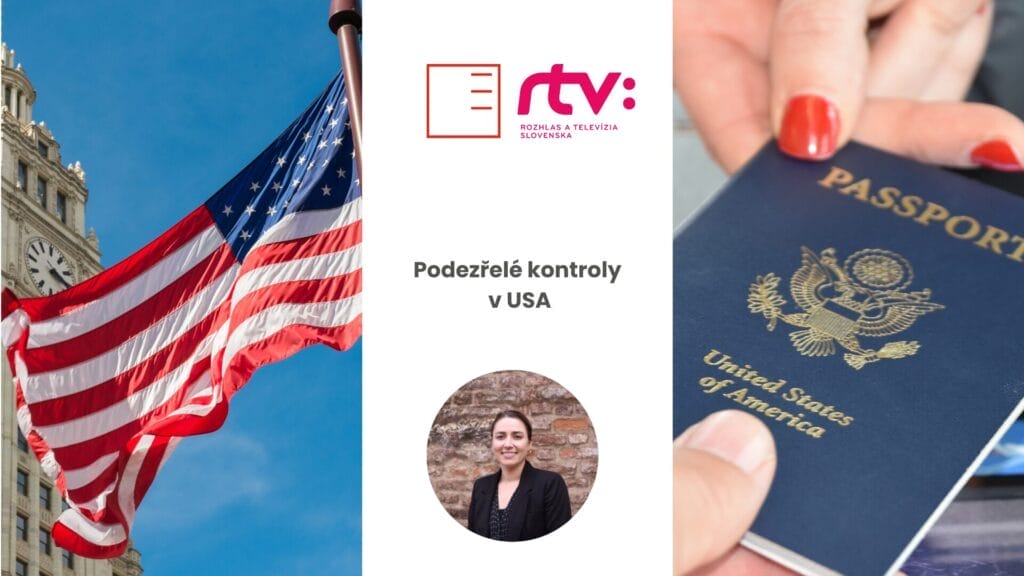
STVR | Podezřelé kontroly v USA
Evropská unie si klade otázku, zda jsou Spojené státy stále spolehlivým partnerem. Členské státy se obávají možné špionáže ze strany Washingtonu. Obavy vyvolaly dodatečné kontroly na amerických hranicích. To může ještě více narušit vzájemné vztahy. Ty se zhoršily po návratu Donalda Trumpa do Bílého domu. Situaci komentovala pro Slovenský rozhlas a televizi výzkumná pracovnice think-tanku EUROPEUM Danielle Piatkiewicz.

Report | Obnova Ukrajiny a podpora jejího členství v EU a NATO
Diskuzní kulatý stůl se zaměřil na aktuální otázky poválečné obnovy Ukrajiny a jejího postavení v evropském a bezpečnostním rámci. Odborní panelisté debatovali o možnostech poskytnutí věrohodných bezpečnostních záruk Ukrajině, roli NATO a EU v jejím dlouhodobém zajištění stability i o výzvách spojených s jejím budoucím členstvím v EU.Diskuze nabídla pohled na Ukrajinu nejen jako na […]
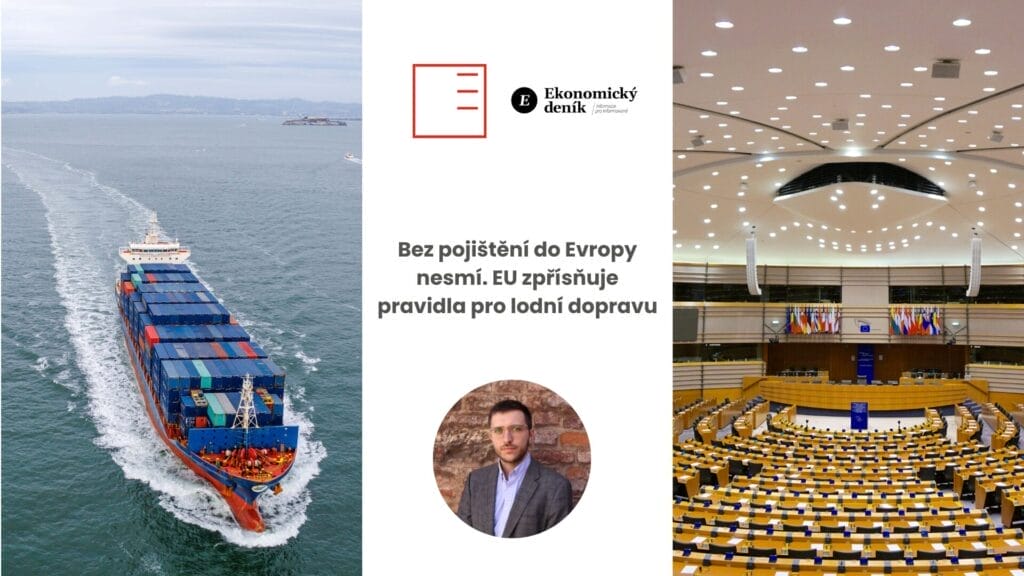
Ekonomický deník | Bez pojištění do Evropy nesmí. EU zpřísňuje pravidla pro lodní dopravu
Evropská komise zpřísňuje pravidla pro lodní dopravu – nově budou muset být všechna plavidla v evropských vodách pojištěná a sdílet o tom informace. Opatření komentuje pro Ekonomický deník analytik Institutu EUROPEUM Filip Křenek.
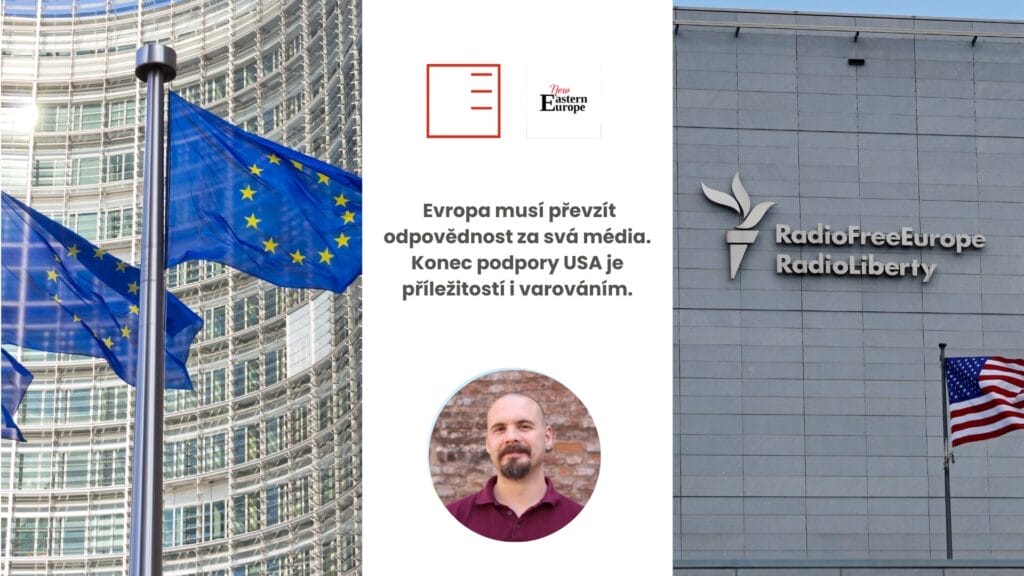
New Eastern Europe | Evropa musí převzít odpovědnost za svá média. Konec podpory USA je příležitostí i varováním
Rozhodnutí USA drasticky snížit financování Rádia Svobodná Evropa/Rádia Svoboda je sice považováno za vážnou ránu transatlantickým vztahům, ale zároveň představuje pro Evropu bezprecedentní příležitost. Pokud chce kontinent chránit přístup k objektivním a dostupným informacím, musí převzít odpovědnost za budování vlastních nezávislých zpravodajských institucí. V době rostoucích dezinformací a hybridních hrozeb se právo na spolehlivé zpravodajství stává otázkou strategického významu. Analytik Institutu EUROPEUM Oszkár Roginer-Hofmeister píše pro New Eastern Europe.
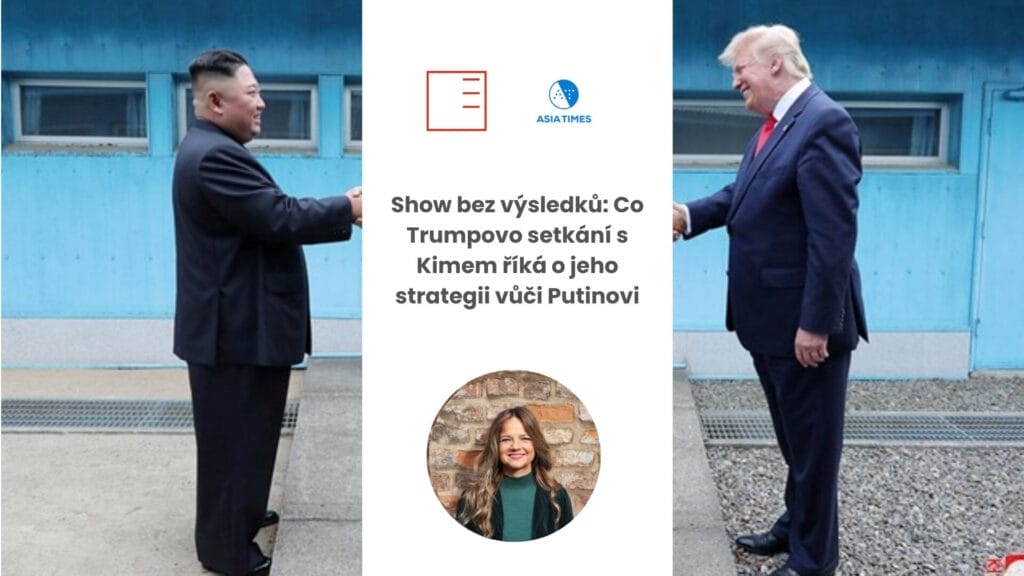
Asia Times | Show bez výsledků: Co Trumpovo setkání s Kimem říká o jeho strategii vůči Putinovi
Donald Trump opakovaně prohlašuje, že chce ukončit válku na Ukrajině. Otázkou však zůstává, jaký mír má na mysli – a v čí prospěch by takové řešení skutečně bylo. Pokud chceme porozumět jeho současnému postoji k Ukrajině a Rusku, stojí za to připomenout si jednu z jeho nejvýraznějších diplomatických iniciativ z minulosti: nečekané a kontroverzní setkání s vůdcem Severní Koreje během jeho prvního funkčního období. Tato epizoda může mnohé napovědět o Trumpově stylu vyjednávání a o tom, co můžeme čekat dál. Pro Asia Times rozebírá analytička Institutu EUROPEUM Tereza Novotná.
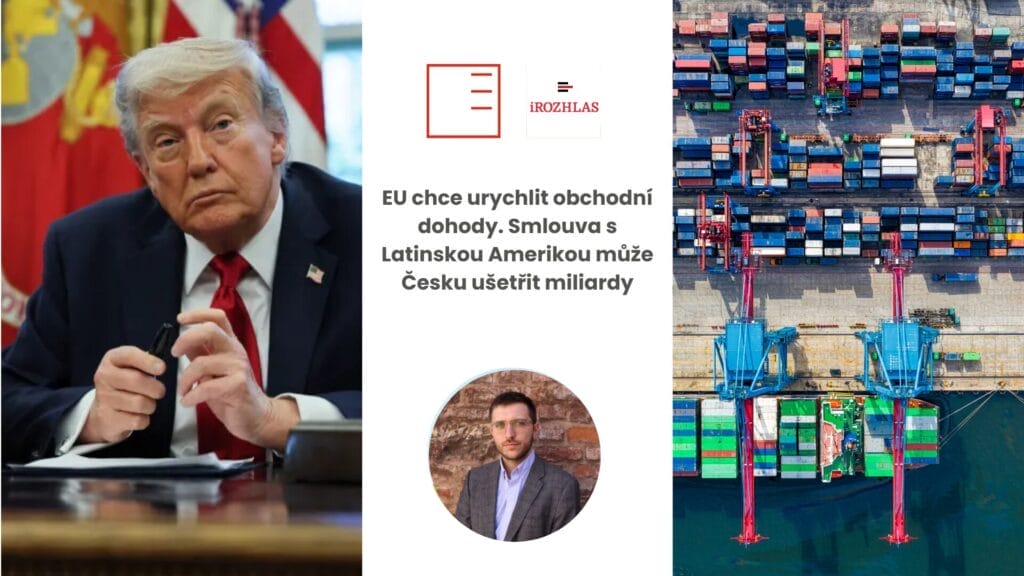
iRozhlas | EU chce urychlit obchodní dohody. Smlouva s Latinskou Amerikou může Česku ušetřit miliardy
Nejistota kolem amerických cel zvyšuje tlak na Evropskou unii, aby urychlila uzavření dlouho rozjednaných obchodních dohod. Nejblíže k dokončení má smlouva s jihoamerickým uskupením Mercosur, která by mohla firmám z Česka podle odhadů ušetřit až 2,2 miliardy korun ročně. Přestože je dohoda de facto připravená, její schválení blokují některé členské státy v čele s Francií. Pro iRozhlas komentoval analytik Institutu EUROPEUM Filip Křenek.